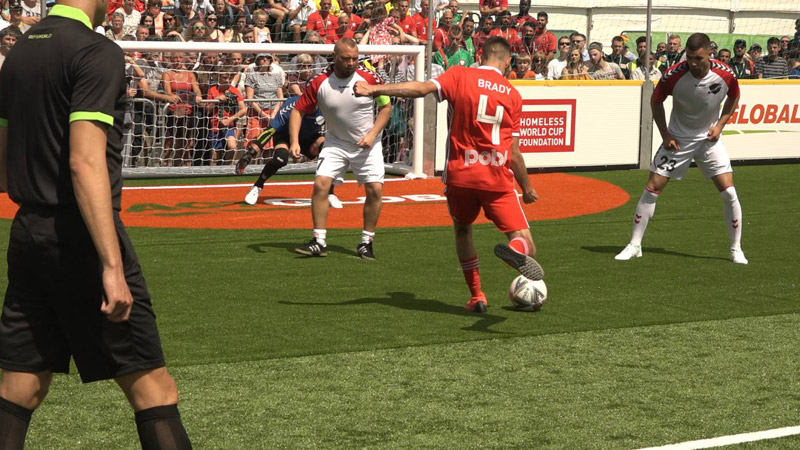 From street vendors to asylum seekers, nearly 500 men and women gathered in Cardiff on Saturday to kick off the 17th Football Homeless World Cup, in a bid to tackle social exclusion and offer a respite from rough sleeping.
From street vendors to asylum seekers, nearly 500 men and women gathered in Cardiff on Saturday to kick off the 17th Football Homeless World Cup, in a bid to tackle social exclusion and offer a respite from rough sleeping.
The week-long tournament, which has garnered support from European soccer body UEFA and global professional players’ union FIFpro, will see players from 48 countries compete in hundreds of games to crowds of nearly 100,000 people. Organisers said they hoped to shift public perceptions of homelessness and that support for players included job training, housing support and health services. “I’ve seen how people get a bit of hope and a bit of confidence through getting involved with football,” Hollywood star and event ambassador Michael Sheen told the Thomson Reuters Foundation.
“Having some of the most marginalised and excluded people in our community representing us … changes people,” said the Welsh actor, famous for his roles in the “Twilight Saga” and Oscar nominated film “Frost/Nixon”.
Getting an accurate picture of global homelessness is challenging as definitions vary from country to country, with many ‘hidden homeless’ who sofa surf, use temporary housing or sleep on transport.
Global housing body Habitat for Humanity estimates about 1.6 billion people lack adequate accommodation or live in substandard housing.
Wilm Lubbersen, a 58-year-old man who became homeless after losing his job and is now goalkeeper for the Dutch team, said the competition had helped him meet people, gain discipline and battle substance abuse.
“It’s about closing the past and starting a new life,” he said on the sidelines of a match.
Teams are selected by national football initiatives and homelessness charities, which pay for flights to the host city, while tournament organisers cover the players’ accommodation, food and travel costs during the event.
The opening match was won by Denmark against Wales after a tense penalty shootout on Saturday, and followed a jubilant parade of players and coaches through the Welsh capital.
Jon Sparkes, head of homelessness charity Crisis, said such sporting events were crucial “as they provide people with vital opportunities to reconnect and come together as a team – all the while boosting their skills and sense of empowerment”.